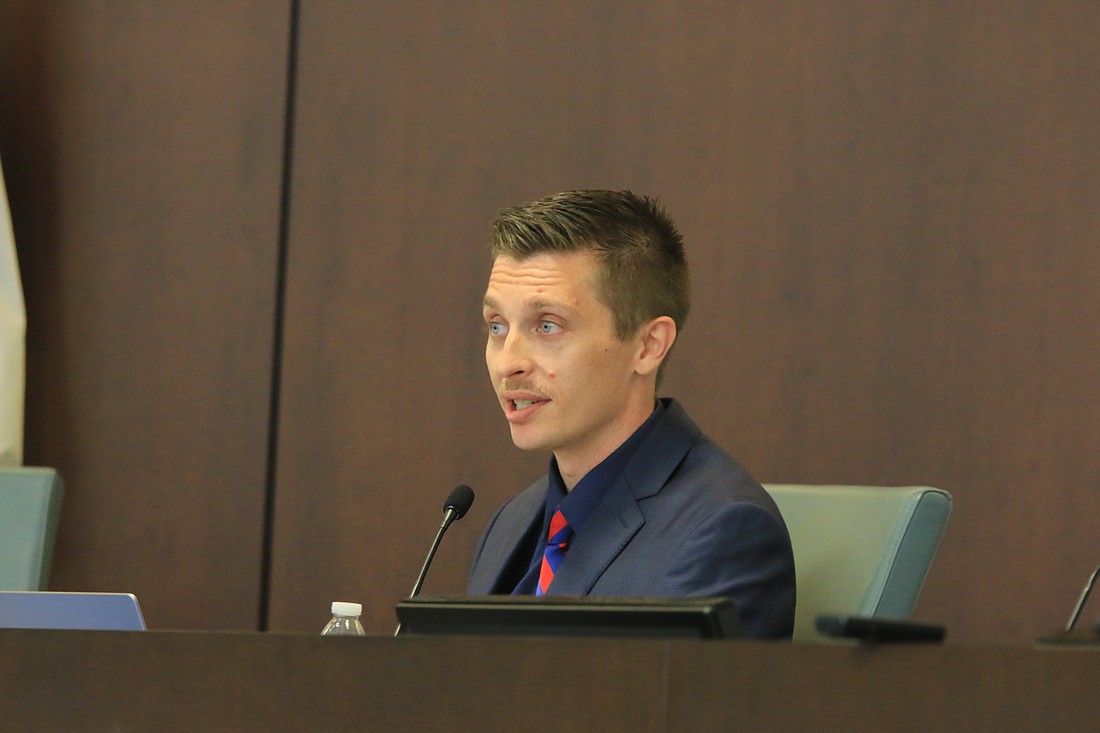- December 15, 2025

Palm Coast has voted 4-1 to increase the city’s water and wastewater impact fees.
For now the, the monthly utility rates residents pay will stay the same. The impact fees for new connections would increase by 35.71% for water capacity fees and by 24.98% for wastewater.
Per state statutes, capacity fees cannot be increased more than 50% of the current fee, and not more than once every four years. Additionally, increases greater than 25% must be phased in over four years.
Palm Coast Mayor David Alfin was the lone dissenting vote at the Feb. 20 meeting, and again voted no at the March 2 vote. Alfin addressed his vote, likening smaller increases to the utility rates — even to impact fees — to “death by a thousand cuts.”
“I am not fully confident that investing more money in the utility department that suddenly claims extreme circumstances to justify increases is worthy of an immediate approval,” Alfin said.
Alfin said he will support future capital improvements to the utility systems, but that good governance dictates the council consider increases as part of an “all-inclusive, comprehensive program” for a conservative city budget.
“Good governance requires guts to stand up and lead towards a well-planned and managed future above the noise of short-term campaign preferences,” he said.
Council member Nick Klufas said he was concerned that only increasing impact fees would delay needed funding for operational costs. Impact fees, Chief of Staff Jason DeLorenzo said, can only be used on new infrastructure, not on the maintenance of existing infrastructure or on the operational costs.
Klufas also pointed out that Palm Coast is around 60 years old and most infrastructure starts to deteriorate at that point. If a water main were to break, he said as an example, impact fees could not legally be used to fix it.
Impact fees and a volumetric increase like the one previously proposed for the monthly bills serve two different purposes, he said.
There's two separate things we're looking at here,” Klufas said. “One is the cost to run our system, and impact fees are only able to uses in a future manner … whereas a volumetric approach would have been able to supplement [the cost to run the system].”
The operational costs of the utility department are funded through the monthly rates residents and existing businesses pay. The original proposed increase included an 18% increase to monthly bills, spread out over three installments, which would support operational costs, like materials, staffing, maintenance and administration costs.
The council had previously directed staff to return with more information on a potential monthly rate increase, which will happen return to council at a future meeting.
Multiple residents in attendance felt the impact fees were not enough, and felt the council needed to max out the impact fees, instead of the suggested increase.
“Please motion and max the impact fees,” resident Bran Burley said. “Developers can pay this.”
Council member Theresa Carli Pontieri said the city is limited to how much it can increase impact fees, based on the predicted cost of growth to the city will be.
“We are at the max, based on what the cost of growth is going to be,” Pontieri said.
Alfin said increasing the impact fees for businesses would just pass the cost increase along to residents.
Flagler Home Builder’s Association Executive Officer Annamaria Long said the HBA would not oppose an impact fee increase, though the HBA typically oppose fee increases across the board.
“The builders do recognize the need to continue to pay for and support the growth we create,” she said.